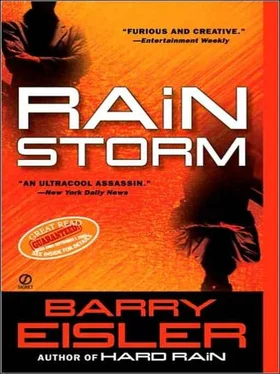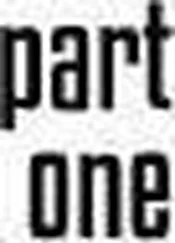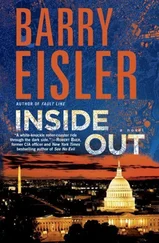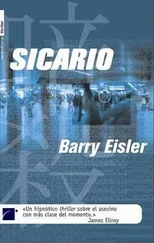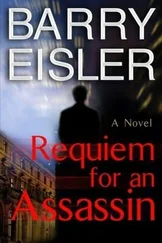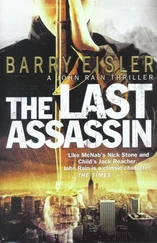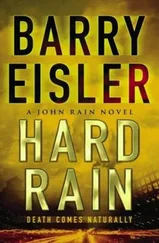Even if I hadn’t had access to the file photo, the long-distance feel I had developed for this guy from his bio would have been enough for me to make him. Belghazi, first name Achille, had been born of a French army officer stationed in Algeria during France ’s “pacification” efforts there, and of a young Algerian woman whom the officer brought back to Paris but did not take as his wife. Illegitimate status hadn’t seemed to slow Belghazi down, though, and he had excelled in school, both academically and athletically, making a name for himself afterward as a photojournalist. His fluent Arabic had made him a natural for covering conflicts in the Arab world: the Palestinian refugee camps, the Mujahideen in Afghanistan, the first Gulf War. Playing on his contacts among the combatants, and on those he developed at the same time among foreign military and intelligence services, Belghazi had become a conduit for small arms deliveries to various Middle Eastern hot spots. His operation had grown organically as his supply-side and customer-side contacts broadened and deepened. His latest efforts were concentrated in Southeast Asia, where various emerging fundamentalist and separatist groups within the region’s sizeable Muslim populations provided a growing customer base. He was known to have a taste for the finer things, too, along with a serious gambling habit.
He was with two large men, also in suits and similarly swarthy, whom I made as bodyguards. One of them started a visual security sweep, but Belghazi didn’t rely on him. Instead, he did his own evaluation of the room and its occupants. I watched in my peripheral vision and, when I saw that he was finished and had turned his attention to the front desk, I looked over again.
A striking blonde had just come through the front doors. She was wearing a black pant suit and pumps. Practical, but classy. What you’d see on a traveler carrying a first-class ticket. She was tall, too, maybe five-nine, five-ten, with long legs that looked good even in pants, and a ripe, voluptuous body. A porter followed her in, gripping a pair of large Vuitton bags. He paused near her and leaned forward to ask something. She raised a hand to indicate that he should wait, then started her own visual sweep of the room. I hadn’t expected that, and quickly returned my attention to Keiko until the blonde’s gaze had passed over us. When I glanced over again, she was standing beside Belghazi, her arm linked through his.
Something about her presence was as relaxed and, in its way, as commanding as his. Everything about her seemed natural: her hair, her face, the curves beneath her clothes.
A minute later she, the porter, and one of the bodyguards headed toward the elevators. Belghazi and the other bodyguard remained at the front desk, discussing something with the receptionist.
The front door opened again. I glanced up and saw Karate.
Christ , I thought. The gang’s all here . I wondered half-consciously whether he’d been tipped off somehow.
Karate walked slowly through the lobby. I saw his gaze move to Belghazi, saw his eyes harden in a way that would mean nothing to most people but that meant a great deal to me. From this gaze I understood that Karate wasn’t looking at a man. No. What I saw instead was a hunter acquiring a target.
And, I knew, but for my long-practiced self-control, had anyone been watching me as I confirmed my suspicions about why Karate was here, they would have seen an identical involuntary atavism ripple across my own features.
A few minutes passed. Belghazi and his man finished at the front desk and made their way to the elevator. I gave them four minutes, then told Keiko I needed to use the restroom and would be right back.
I went to a house phone and asked the operator to connect me to the Oriental Suite. There were only two suites in the hotel-the Oriental and the Macau -and, judging from his file, I had a feeling Belghazi would be occupying one of them.
No answer at the Oriental. I tried again, this time asking for the Macau.
“Hello,” a man’s voice answered.
“Hello, this is the front desk,” I said, doing a passable imitation of a local Chinese accent. “Is there anything we can do to make Mr. Belghazi’s stay with us more comfortable?”
“No, we’re fine,” the voice said.
“Very good,” I said. “Please enjoy your stay.”
THAT NIGHT, while Keiko was out, I sat in the hotel room and used an earpiece to listen in on Karate. He was in his room, from the sound of it watching CNN International Edition. Go to sleep, or go out: I would take my cue from him. I was already dressed in a pair of charcoal worsted pants, navy pullover, and comfortable, rubber-soled walking shoes in case we wound up with the second option, a night on the town.
I looked out at the massive cranes and earth moving equipment that Macau was using to build yet more bridges to China ’s Guangdong province, the low mountains of which crouched a few kilometers distant. The machines rose from the harbor like mythological creatures provoked from the seabed, hulking, misshapen, slouching toward land but held fast by the muck below.
The cranes reminded me of Japan, where I’d lived most of my adult life and where reclaiming land from the sea for the construction of redundant bridges and unneeded office parks is a national sport. But where the ubiquitous construction in Japan always felt familiar, almost comforting in its obviousness, here the excess was mysterious, even vaguely menacing. Who made the decisions? Who rigged the environmental impact statements to ensure that the projects were approved? Who profited from the kickbacks? I didn’t know. In many ways, Macau was a mystery.
I had spent the previous three weeks here, moving from hotel to hotel, keeping a low profile, getting a solid feel for the place. Before accepting the Belghazi assignment, I hadn’t known much more about the place than what I picked up from reading the Far Eastern Economic Review : Portugual’s return of the territory to China in 1999 had been amicable, as these things go, and the territory’s five percent ethnic Portuguese population was unusually well integrated, speaking Cantonese and mixing with the locals in a way that might make most British-derived Hong Kongers blush; its service economy was staffed largely by Filipinos and Thais; for a territory that until recently had been the ball in a five-hundred-year game of Great Power Ping-Pong, it had an unusually firm sense of its own identity.
At the end of my three-week sojourn, I knew much more: how to dress, walk, and carry myself to look like one of the millions of visitors from, say, Hong Kong; the layout and rhythms of the stores and streets; the codes and mores of the casinos. All of which would confer an important advantage in the job at hand.
I heard the phone ring in Karate’s room. The television went quiet.
“ Allo ,” I heard him say. A pause, then, “ Bien .”
French, then, as I had suspected from the nicotine permeating his room. And with a cultured Parisian accent. My French was mostly left over from high school, and the receiver reception was muffled and obscured by periodic static. This was going to be tough.
“Oui, il est arrivé ce soir.”
That I understood. Yes, he arrived tonight.
Another pause. Then, “ Pas ce soir .” Not tonight.
Pause. Then, “ Oui, la réunion est ce soir. Ensuite cela .” Yes, the meeting is tonight. Then after that.
Pause. A thicket of words I couldn’t pick apart, followed by, “ Tout va bien .” Everything is fine. Another impenetrable thicket. Then, “ Je vous ferai savoir quand ce sera fait .” I’ll let you know when it’s done.
Click. Back to CNN.
Читать дальше
